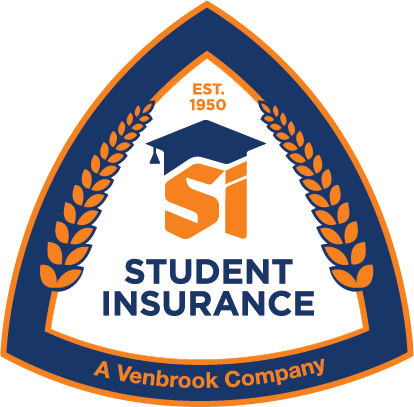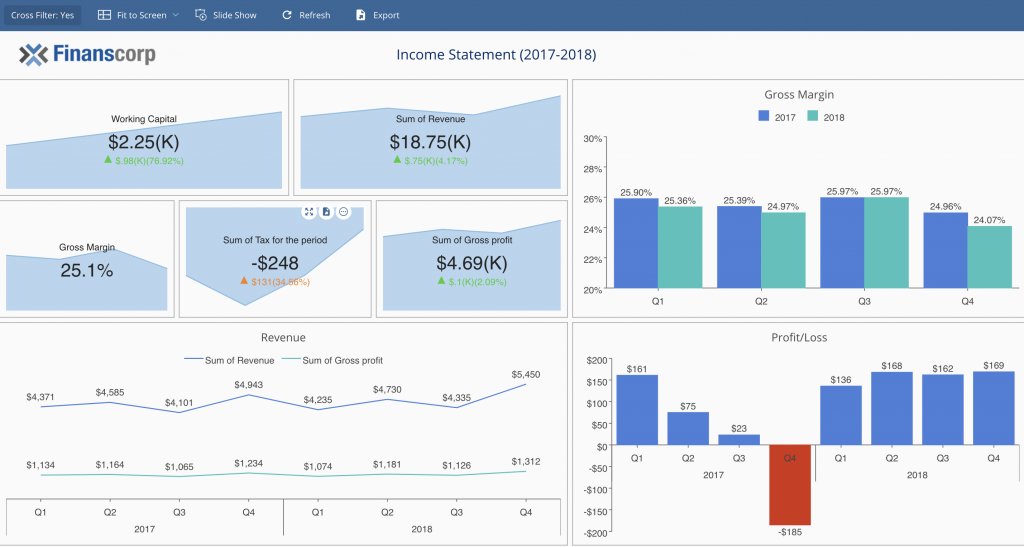Introduction
Car accidents can leave lasting repercussions, one of which is disability. Physical trauma from a crash can damage tissues, muscles, and bones, potentially hindering a person’s capacity to perform their job duties. Disability after a car accident can throw one’s life into disarray, bringing financial woes, healthcare concerns, and a psychological toll.
Disability following a car accident can manifest in various forms. It may involve physical limitations that restrict movement or coordination, or it can manifest as cognitive impairments that affect memory, concentration, or problem-solving abilities. In severe cases, disability can prevent an individual from returning to work altogether.
Navigating the aftermath of a car accident is never easy, but navigating it with a disability poses additional challenges. If you or someone you know has sustained a disability in a car accident, understanding your rights and accessing support systems is crucial.
Understanding Disability Benefits
Individuals with disabilities may be eligible for various benefits and accommodations to help them cope with their limitations. These benefits can provide financial assistance, medical care, and job training to help them regain some semblance of normalcy.
Social Security Disability Insurance (SSDI) offers monthly payments to disabled individuals who have worked and paid into the Social Security system. Supplemental Security Income (SSI) provides financial assistance to disabled individuals with limited income and resources.
The Americans with Disabilities Act (ADA) prohibits discrimination against individuals with disabilities and requires employers to make reasonable accommodations to enable them to perform their job duties. These accommodations can include assistive technology, flexible work schedules, or modified workspaces.
Path to Recovery
Recovering from a car accident disability is a complex and multifaceted journey. It often involves a combination of medical treatment, rehabilitation, and emotional support.
Physical therapy can help restore mobility and function, while occupational therapy can help individuals regain skills necessary for daily living and work. Speech therapy can assist with communication difficulties, and cognitive rehabilitation can improve memory and thinking skills.
Emotional support is equally important during this time. Joining support groups or seeking counseling can provide a safe space to connect with others who understand the challenges of living with a disability.
Legal Considerations
If you have sustained a disability in a car accident caused by someone else’s negligence, you may be entitled to compensation for your injuries and losses.
Consulting an experienced personal injury attorney can help you understand your legal options and guide you through the claims process. An attorney can assess your case, gather evidence, and negotiate a fair settlement or represent you in court.
Conclusion
Car accident disabilities can have a profound impact on an individual’s life, affecting their ability to work, socialize, and live independently. However, with proper medical care, legal support, and emotional resilience, individuals can navigate the challenges of a disability and reclaim their quality of life.
Car Accident Disability: When the Unthinkable Happens
Every day, millions of Americans get behind the wheel of a car, unaware that their lives could change in an instant. A car accident can happen in a split second, leaving victims with life-altering injuries that can make it difficult or impossible to work.
If you’ve been injured in a car accident and are unable to work, you may be eligible for car accident disability. Car accident disability is a type of insurance that provides financial assistance to victims of car accidents who are unable to work due to their injuries. The benefits of car accident disability can help cover lost wages, medical expenses, and other expenses related to your accident.
How Does Car Accident Disability Work?
Car accident disability is typically provided by your employer’s insurance company. If you’re injured in a car accident while on the job, you may be eligible for workers’ compensation benefits. However, if you’re injured in a car accident while off the job, you may be eligible for personal injury protection (PIP) benefits. PIP benefits are typically included in your auto insurance policy and can help cover medical expenses and lost wages related to your accident.
To qualify for car accident disability, you must prove that you have a physical or mental impairment that prevents you from working. The impairment must be caused by the car accident and must be expected to last for at least one year. You must also provide documentation from a doctor or other qualified medical professional to support your claim.
The amount of car accident disability benefits you receive will depend on the severity of your injuries and your earnings before the accident. Benefits are typically paid weekly or monthly and can continue until you are able to return to work or until the policy limits are reached.
What Are the Benefits of Car Accident Disability?
Car accident disability can provide a much-needed financial safety net for victims of car accidents. The benefits of car accident disability can help cover lost wages, medical expenses, and other expenses related to your accident. This can help you focus on your recovery without having to worry about how you’re going to pay your bills.
In addition to financial assistance, car accident disability can also provide peace of mind. Knowing that you have a financial safety net in place can help you focus on your recovery and get back to living your life.
Car Accident Disability: A Life-Altering Consequence
Car accidents, with their unpredictable and devastating consequences, can leave victims grappling with a wide range of impairments. These disabilities, often invisible to the untrained eye, can profoundly impact every aspect of a person’s life, from their mobility and communication to their ability to work and enjoy their hobbies.
Types of Car Accident Disabilities
Car accident disabilities can range from minor cuts and bruises to severe injuries with long-lasting effects.
Some of the most common types of car accident disabilities include:
– Musculoskeletal injuries: These injuries involve damage to the muscles, bones, joints, or connective tissues. They can range from sprains and strains to fractures, dislocations, and even amputation.
– Neurological injuries: These injuries affect the brain, spinal cord, or nerves. They can result in a wide range of symptoms, including paralysis, loss of sensation, cognitive impairment, and speech difficulties.
– Traumatic brain injuries (TBIs): TBIs are caused by a blow to the head that disrupts the brain’s function. They can range from mild concussions to severe injuries that result in permanent disability.
– Psychological injuries: These injuries can include post-traumatic stress disorder (PTSD), depression, anxiety, and insomnia. They can significantly impact a person’s mental and emotional well-being.
Car Accident Disability: Legal Protections and Resources
A car accident can be a life-altering event, leaving victims with physical, cognitive, and emotional disabilities. These disabilities can make it challenging to work, carry out daily activities, and fully participate in society. However, there are laws in place to protect individuals with disabilities, including those caused by car accidents.
Legal Protections for Individuals with Car Accident Disabilities
The Americans with Disabilities Act (ADA) is a landmark piece of legislation that prohibits discrimination against individuals with disabilities in employment, housing, public accommodations, transportation, and other areas of public life. The ADA also requires employers to make reasonable accommodations for employees with disabilities, including those who have been injured in car accidents.
In addition to the ADA, there are other federal and state laws that provide legal protections for individuals with car accident disabilities. These laws include:
- The Rehabilitation Act of 1973
- The Individuals with Disabilities Education Act (IDEA)
- The Social Security Disability Insurance (SSDI) program
- The Supplemental Security Income (SSI) program
- State workers’ compensation laws
These laws provide a variety of benefits and protections for individuals with car accident disabilities, including:
- Protection from discrimination in employment, housing, and public accommodations
- Reasonable accommodations at work
- Access to educational and vocational rehabilitation services
- Social Security disability benefits
- Workers’ compensation benefits
If you have been injured in a car accident and are experiencing disabilities as a result, you may be eligible for benefits and protections under these laws. It is important to contact an attorney who specializes in disability law to discuss your rights and options.
Car Accident Disability: A Guide to Benefits
After a car accident, the road to recovery can be long and arduous. For those who suffer permanent disabilities as a result of the crash, the challenges can be even greater. However, there are a number of benefits available to individuals with car accident disabilities that can help them cope with the financial and emotional burdens they face.
Benefits for Individuals with Car Accident Disabilities
Individuals with car accident disabilities may qualify for benefits such as workers’ compensation, Social Security Disability Insurance (SSDI), and private disability insurance.
Workers’ compensation is a state-run insurance program that provides benefits to employees who are injured on the job. These benefits can include medical expenses, lost wages, and vocational rehabilitation.
SSDI is a federal program that provides benefits to individuals who are unable to work due to a disability. To qualify for SSDI, you must have worked and paid into the Social Security system for a certain amount of time. You must also meet the SSA’s definition of disability, which is very strict.
Private disability insurance is an insurance policy that provides benefits to individuals who are unable to work due to a disability. Unlike SSDI, private disability insurance is not based on your work history. However, it can be more expensive than SSDI.
In addition to these benefits, individuals with car accident disabilities may also qualify for other forms of assistance, such as Medicaid, Medicare, and food stamps.
How to Apply for Benefits
To apply for benefits, you will need to gather documentation of your disability and your income. You can apply for benefits online, by phone, or in person at your local Social Security office.
The application process can be complex and time-consuming. It is important to be patient and to seek help from a qualified professional if you need it.
Getting Help
There are a number of organizations that can help individuals with car accident disabilities navigate the application process and access the benefits they need. These organizations include:
- The Social Security Administration
- The National Council on Disability
- The American Association of People with Disabilities
These organizations can provide you with information, support, and referrals to other resources.
Conclusion
If you have been injured in a car accident and have suffered a disability, you may be eligible for benefits that can help you cope with the financial and emotional challenges you face. The application process can be complex, but with the help of a qualified professional, you can increase your chances of success.
Car Accident Disability: A Life-Altering Event
Car crashes exact a heavy toll not only on victims’ physical well-being but also on their ability to work, manage pain, and cope with the emotional aftermath. For individuals grappling with car accident disabilities, life can be filled with challenges and obstacles.
Challenges Faced by Individuals with Car Accident Disabilities
Returning to Work
Regaining the ability to work after a car accident is a daunting task for many survivors. Limitations in physical abilities, cognitive impairments, and emotional distress can make it difficult to perform job duties. Additionally, victims may confront discrimination and prejudice from employers, making the job search even more challenging.
Chronic Pain Management
Chronic pain is an unwelcome companion for countless car accident victims. Dealing with relentless pain can interfere with daily activities, sleep, and overall well-being. Managing chronic pain often involves a combination of pain medications, physical therapy, and alternative therapies.
Emotional Impact
The emotional toll of a car accident can be profound. PTSD, anxiety, and depression are common among survivors. Coping with these emotional challenges requires professional help and support from loved ones. Individuals need time to process the trauma and adjust to the new realities of their lives.
Financial Difficulties
Car accident disabilities often lead to financial hardship. Medical expenses, lost wages, and reduced earning potential can put a significant strain on victims and their families. Victims may need to seek financial assistance from government programs or explore legal options to recover compensation for their losses.
Social Isolation
Car accident disabilities can lead to social isolation. Survivors may withdraw from social activities due to physical limitations, emotional distress, or feelings of isolation. Reconnecting with friends and family, joining support groups, and seeking community resources can help victims rebuild their social networks.
Adaptation and Resilience
Despite the challenges, many individuals with car accident disabilities find ways to adapt and rebuild their lives. Through therapy, assistive technology, and the support of loved ones, they learn to cope with their limitations and find new ways to live fulfilling lives. Their stories are a testament to the resilience of the human spirit in the face of adversity.
Car Accident Disability: Navigating the Aftermath
Following a car accident, coping with injuries and disabilities can be an overwhelming challenge. Nevertheless, know that you’re not alone. Numerous resources and support systems exist to assist individuals in navigating this difficult time.
Support Groups for Emotional Healing
Connecting with others who have experienced similar trauma can provide invaluable emotional support. Joining a support group for car accident survivors allows you to share your experiences, learn coping mechanisms, and gain a sense of community. These groups offer a safe and understanding environment where you can express your thoughts and feelings without judgment.
Rehabilitation Services for Physical Recovery
Physical injuries sustained in car accidents can require extensive rehabilitation. Rehabilitation services focus on restoring mobility, function, and quality of life. These services may include physical therapy, occupational therapy, and speech therapy. With dedicated effort and the guidance of skilled therapists, individuals can maximize their recovery and regain their independence.
Legal Assistance for Compensation and Justice
In cases where a car accident is caused by negligence, legal assistance can be crucial. An experienced attorney can guide you through the legal process, protect your rights, and help you pursue compensation for your injuries and damages. Legal assistance ensures that you receive fair compensation for your medical expenses, lost wages, and pain and suffering.
Government Programs for Financial Aid
Government programs such as Social Security Disability Insurance (SSDI) and Supplemental Security Income (SSI) can provide financial assistance to individuals with car accident disabilities. These programs offer monthly benefits to those who meet eligibility criteria based on their income, assets, and the severity of their disability.
Transportation Assistance for Mobility
For individuals whose car accident injuries have impacted their mobility, transportation assistance programs can provide vital support. These programs may offer specialized transportation services, such as wheelchair-accessible vehicles or ride-sharing programs. This assistance enables individuals to maintain their independence and access essential services.
Vocational Rehabilitation for Career Reintegration
For those whose car accident disabilities have limited their ability to work, vocational rehabilitation programs provide training, counseling, and job placement assistance. These programs help individuals develop new skills, explore alternative career paths, and regain their earning potential.
Conclusion
Navigating the aftermath of a car accident disability can be daunting, but remember that you are not alone. A wide range of resources and support systems are available to assist you in your recovery, both physically and emotionally. By accessing these resources, you can maximize your rehabilitation, pursue justice, secure financial aid, regain your mobility, and reintegrate into work. Know that there is hope and support along your journey towards healing and resilience.
Car Accident Disability: Understanding Your Legal Protections and Resources
After being involved in a car accident, you may find yourself dealing with not only physical injuries but also the potential for long-term disabilities. These disabilities can range from minor impairments to severe conditions that significantly impact your ability to work or live independently.
The good news is that there are legal protections and resources available to help you cope with the financial and practical challenges of living with a car accident disability. In this article, we will explore the various types of disability benefits you may be eligible for, as well as the legal options available to you if you need to pursue compensation for your injuries.
Types of Car Accident Disabilities
Car accident disabilities can take many forms, including:
- Traumatic brain injuries (TBIs)
- Spinal cord injuries
- Broken bones
- Burns
- Amputations
- Vision or hearing loss
- Post-traumatic stress disorder (PTSD)
Legal Protections for Individuals with Car Accident Disabilities
If you have suffered a disability as a result of a car accident, you may be entitled to certain legal protections, such as:
- The right to file a personal injury lawsuit against the at-fault driver
- The right to receive workers’ compensation benefits if you were injured on the job
- The right to apply for Social Security disability benefits
Pursuing Compensation for Your Injuries
If you have been injured in a car accident and are facing a disability, you may be wondering how you will pay for your medical expenses, lost wages, and other damages. You may be able to pursue compensation for your injuries by filing a personal injury lawsuit against the at-fault driver. An experienced personal injury attorney can help you determine whether you have a case and can guide you through the legal process.
Applying for Social Security Disability Benefits
If you are unable to work due to a car accident disability, you may be eligible for Social Security disability benefits. The Social Security Administration (SSA) offers two types of disability benefits:
- Social Security Disability Insurance (SSDI)
- Supplemental Security Income (SSI)
Other Resources for Individuals with Car Accident Disabilities
In addition to the legal protections and resources mentioned above, there are a number of other resources available to individuals with car accident disabilities. These resources can provide you with financial assistance, medical care, and other support services.
Conclusion
Car accident disabilities can have a profound impact on a person’s life and financial well-being. Understanding the legal protections and resources available is crucial for individuals facing this challenge.




Leave a Reply